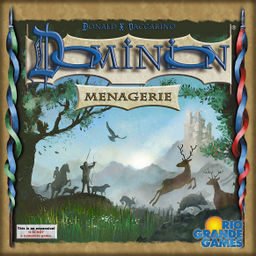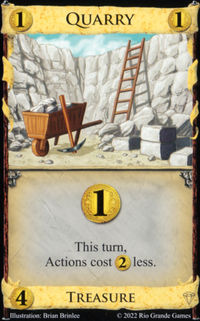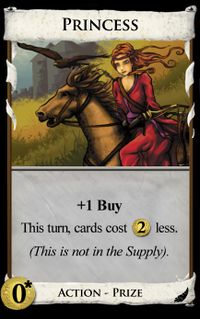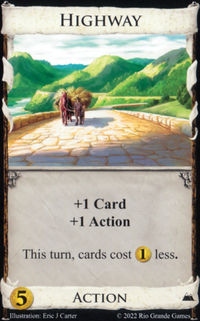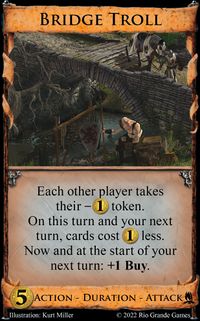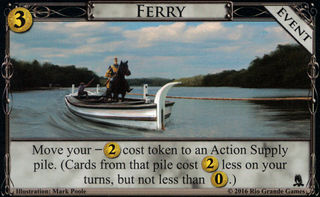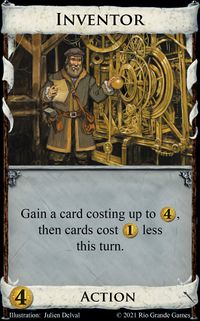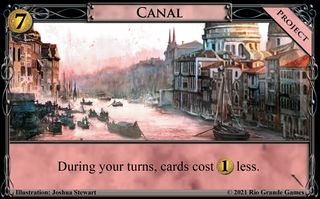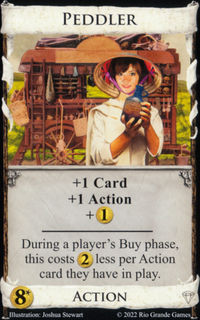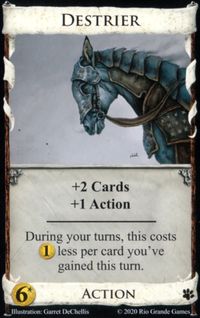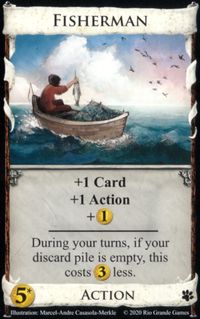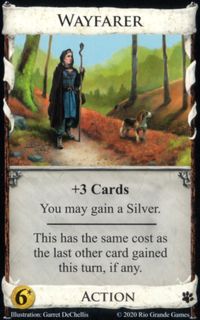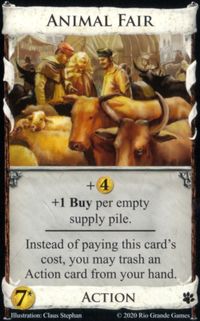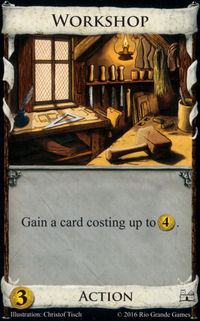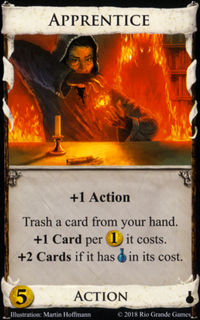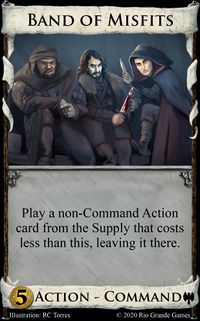Cost reduction
(→List of cards that can reduce their own cost) |
(→List of cards that can reduce their own cost) |
||
| Line 26: | Line 26: | ||
* {{Card|Wayfarer}} - cost is equal to the cost of the last-gained card, and can even become ''more'' expensive than its base price | * {{Card|Wayfarer}} - cost is equal to the cost of the last-gained card, and can even become ''more'' expensive than its base price | ||
{{Card|Animal Fair}}, also from Menagerie, is an odd case: it can be bought for {{cost|0}} if you trash an Action card from your hand, but its numerical cost doesn't change as part of this effect. | {{Card|Animal Fair}}, also from Menagerie, is an odd case: it can be bought for {{cost|0}} if you trash an Action card from your hand, but its numerical cost doesn't change as part of this effect. | ||
| + | === Retrospective ([[Menagerie]]) === | ||
| + | {{Quote | ||
| + | |Text= The weak point of the set for me is the weird-cost cards. They are nicely novel, but all generate a lot of rules questions. {{Card|Animal Fair}} seems worth it; I could have done a few of those, saved other weird costs for another day. | ||
| + | |Name=[[Donald X. Vaccarino]] | ||
| + | |Source=[http://forum.dominionstrategy.com/index.php?topic=20466.msg850147#msg850147 Menagerie Hot Takes] | ||
| + | }} | ||
== Strategy == | == Strategy == | ||
Revision as of 21:54, 16 April 2021
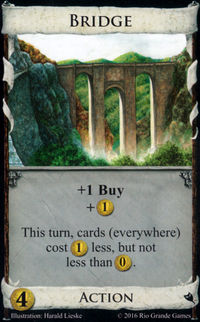
Cost reduction is a recurring mechanic in Dominion. Rather than directly fielding coin, cost-reducers decrease the cost of cards, an effect which becomes more valuable with more buys or gainers. Typical cost reduction instructions follow this wording:
- [All cards or some subset of cards] (including cards in players' hands) cost less this turn, but not less than .
However, with the 2019 errata, the "but not less than " clause has been dropped, as it is now a general rule that costs can never drop below , and that clause was never included in any of the cards of this type in Menagerie.
Reducing a cost in does not reduce a cost in or . Reducing the cost of cards does not affect the cost of Events or Projects.
Contents |
List of cost-reducers
- Bridge - the archetypal cost-reducer
- Quarry - reduces Action cards by
- Princess - reduces costs by , but only one copy
- Highway - cantrip
- Bridge Troll - durational cost-reducer
- Ferry - reduces a single Supply pile's cost by
- Inventor - gains a card costing up to before its cost reduction kicks in
- Canal - reduces costs on your turn for the rest of the game
List of cards that can reduce their own cost
There are currently four cards whose cost is variable. These have a base cost which can be changed by something that happens during your turn. Of these, three are in the Menagerie expansion
- Peddler - cost is reduced by per Action card in play, but only during your buy phase
- Destrier - cost is reduced by the number of cards you gained on that same turn
- Fisherman - cost is reduced by if you have no cards in your discard pile
- Wayfarer - cost is equal to the cost of the last-gained card, and can even become more expensive than its base price
Animal Fair, also from Menagerie, is an odd case: it can be bought for if you trash an Action card from your hand, but its numerical cost doesn't change as part of this effect.
Retrospective (Menagerie)
Strategy
Most cards that reference a specific cost in do well with cost-reducers, as most such cards use the specific cost as an upper limit. For example, Workshop can gain any card costing up to ; without cost reduction, this effect is rather weak, but with four Highways in play, a Workshop can gain Provinces. On the other hand, cards that give a scaling effect per cost in of another card (most often trash for benefit cards) will do less well with cost-reducers, as their effect will be diminished, and cards that reference a cheaper card will give no effect if their cost has been reduced to . For examples, trashing a Silver to an Apprentice when you have Princess in play will only draw you one card, and with five Highways in play, Band of Misfits can't do anything.
Since cost reduction affects cards but not Events, it is less useful for strategies that depend heavily on buying Events (or Projects).
